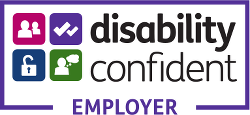Mae Trac yn falch o bweru recriwtio ar gyfer
London Ambulance Service NHS Trust

Gwybodaeth
The London Ambulance Service NHS Trust (LAS) is the largest free ambulance service in the world, caring for more than one-and-a-half million patients every year.
We are the only London-wide NHS Trust and are at the frontline of the NHS in the capital. We serve an area of approximately 620 square miles. Broadly speaking, this is the whole area within the M25.
We have two main functions - the provision of an Accident and Emergency service to respond to 999 calls and our Patient Transport Service, which performs an important role in taking patients to and from their hospital appointments.
In addition, we also manage the Emergency Bed Service, which co-ordinates registers of specialised care facilities available across London, along with some national monitoring services.
Cysylltu
- Address
- London Ambulance Service Headquarters
- 220 Waterloo Road
- London
- SE1 8SD
- Contact Number
- 020 3069 0260
Location Group Manager
Closed for applications on: 21-Chwef-2024 08:53
Statws y swydd wag: Closed
Closed for applications on: 21-Chwef-2024 08:53
Manylion allweddol
Lleoliad
- Gwefan
- Deptford Ambulance Station
- Cyfeiriad
- 1 New Cross Road
- Tref
- London
- Cod post
- SE14 5DS
- Major / Minor Region
- Llundain
Math o gontract a phatrwm gwaith
- Contract
- Parhaol
- Oriau
- Llawnamser - 37.5 awr yr wythnos
Cyflog
- Cyflog
- £66,718 - £76,271 Per annum
- Cyfnod cyflog
- Yn flynyddol
- Gradd
- (NHS AfC: Band 8b)
Arbenigedd
- Prif leoliad
- Location Group Manager
Our vision is to deliver outstanding emergency and urgent care whenever and wherever needed for everyone in London, 24/7, 365 days a year. We are the busiest emergency ambulance service in the UK serving one of the world’s most dynamic and diverse cities. We provide emergency and urgent healthcare that is free to patients at the time they receive it.
We are the only NHS provider trust to serve the whole of London and the nine million people who live in, work in or visit the city. We cover an area of 620sq miles and have more than 8,000 people who work or volunteer for us – rising to 10,000 when including bank staff and students.
We answer around two million 999 calls a year and our crews attend more than 3000 emergencies a day. Our 24-hour 111 integrated urgent care services London answer around two million calls a year.
We play a leading role in integrating access to emergency and urgent care in the capital and are striving to ensure patients receive the right response, in the right place, at the right time
Our main role is to respond to emergency 999 calls, providing medical care to patients across the capital, 24-hours a day, 365 days a year. Other services we offer include providing pre-arranged patient transport and finding hospital beds. Working with the police and the fire service, we are prepared for dealing with large-scale or major incidents in the capital.
Trosolwg o'r swydd
The (Location) Group Manager (LGM) is the senior leadership role, and the public face, of the London Ambulance Service in the designated station group. As a member of the sector senior leadership team within one of five London sectors, the LGM is accountable for leading and managing a team of Clinical Team Managers (CTMs) and Station Support Manager/s (SSMs). They will be required to plan and co-ordinate delivery and report day-to-day and longer term emergency and urgent care services to defined performance, quality and productivity standards, and ensure financial balance
Advert
- Actively supporting and promoting the Trust’s vision and values through role modelling effective and appropriate leadership behaviours in both day-to-day operations and in high risk, difficult and distressing situations; demonstrating flexibility and adaptability of leadership and communication styles to match the situation and audience.
- Representing or deputising for the Associate Director of Ambulance Operations when required.
- Making effective decisions concerning patient care, the public, staff and the Service using well-informed judgement and, when necessary, in collaboration with a range of stakeholders in support of the high standards of delivery for the Group.
- Supporting and developing CTMs and SSMs to deliver agreed key performance indicators (KPIs) and objectives and holding their teams to account for delivery.
- Working closely with the Quality, Governance and Assurance Managers (QGAMs) and Sector Senior Clinical Leads (SSCLs) to deliver the Trust’s clinical and quality agendas, and standards defined for the Group.
- Managing the delivery of operational resourcing levels to achieve compliance against the required capacity plans for the station.
- Any other duties commensurate with the role.
Gweithio i'n sefydliad
London Ambulance Service serves one of the worlds most dynamic and diverse cities and is the busiest ambulance service in the UK. We handle over 1.9 million emergency calls from across the capital every year as well as delivering a 24 hour NHS 111 Integrated Urgent Care Service in South East and North East London that we estimate will respond to around 1.4million urgent care calls by the end of the year.
We employ over 8,000 people who work or volunteer, across London to respond to the health needs of over 8 million people who live, work and travel in the capital.
We work closely with our NHS partners and are commissioned by 32 clinical commissioning groups spread across 5 STPs and NHS England for our specialist services.
As the only pan-London NHS provider we have a unique opportunity to play a leading role in integrating access to emergency and urgent care right across London.
Swydd-ddisgrifiad a phrif gyfrifoldebau manwl
Key Result Areas & Performance Indicators
- Achieve key performance, quality and productivity targets which contribute to the achievement of the KPIs/Group scorecard which will be reviewed at monthly Chief Executive Performance Reviews, and other governance groups/committees, and which show evidence of continuous improvement.
- Reduce the number of unnecessary conveyances made to emergency departments in accordance to locally set targets and increase the number of patients seen per shift at a group level.
- Achieve the regulatory and Trust targets for completion of investigation and complaints reports.
- Work with Quality Assurance to personally undertake investigations and ensure that those undertaken by others are actioned in a timely manner; monitoring and critically reviewing investigation and complaints reports to provide robust standards of quality and accuracy; and take mitigating actions and embed the learning from incidents and complaints in order to prevent reoccurrence.
Key Relationships & Stakeholders
- Associate Director of Ambulance Operations
- Director(s) of Operations
- Head of Functions (Integrated Urgent & Emergency Care, Compliance and Standards, Resilience and Specialist Assets, Fleet and Logistics etc.)
- Chief Executive
- Executive Directors
- Local Acute/Mental Health Trusts, Clinical Commissioning Groups, Sustainability and Transformation Partnerships, Community Trusts, Commissioning Support Units
- The Metropolitan Police Service, the London Fire Brigade and other emergency and clinical services
- Trade Unions
Key Responsibilities
Strategy
Deliver against the Trust’s strategic goals/objectives by:
- Understanding the LAS Strategic Plan and clearly communicating relevant information to staff/other stakeholders as required, ensuring that local strategies support key objectives.
- Developing consistent practices so that the station group can respond rapidly and effectively to changes and demands in patient care, working practices, external and internal factors.
- Participate in and support quality improvements at a Group/Sector level.
Operational Delivery
Being personally accountable and holding CTMs accountable for delivering station group plans to meet contractual, KPIs, locally agreed clinical, quality and productivity standards through:
- Delegated authority to represent or deputise for the Associate Director of Ambulance Operations when required.
- Working in collaboration with the wider station group/sector team and key stakeholders to provide a consistent, timely and integrated service.
- Embracing new technology to improve systems, processes and patient care.
- Maintaining emergency driving and clinical competency to at least first person on scene (FPOS) standard through the use of these skills.
- Making and being accountable for decisions on behalf of the Trust at Silver/Tactical level which requires working an on-call out of hours rota over days, nights weekends and public holidays; to undertake a command role as part of your core duties at a minimum of five stadia and five public events each year in order to maintain commander competency; and being available to work nights and weekends in extremis if required at times of extreme pressure (e.g. Winter).
- Provides regular and accurate reports using software to analyse data on performance, quality and productivity measures for the station group as required.
Quality Care & Governance
Delivering high-quality patient care according to Trust standards and Care Quality Commission domains by:
- Managing the CTMs to sustain the achievement of all clinical and quality performance indicators for the Group.
- Managing the CTMs to respond to outcomes from clinical and quality governance audits and taking corrective actions as required.
- Regularly undertake audits for the station group e.g. equipment audits, medicines management audits etc.
- Contributing to the development of and implementing policies and procedures with appropriate committees and groups.
- Managing the CTMs to ensure that a safe working environment is maintained for all staff and patients. This includes compliance with health and safety legislation and proactively seeking to reduce health and safety risks on the risk register. LGMs must ensure that staff have undertaken the necessary health and safety training and ensure that all incidents (including RIDDOR reportable incidents) are immediately reported, investigated and graded with lessons learnt.
- Maintain and update Health Assure so that station group work and standards can be evidenced against CQC domains.
- Work closely with the QGAMs and Quality Assurance directorate to develop and improve quality improvement measures, risk management and health and safety.
- Follow, report and monitor governance arrangements across the station group ensuring that the risk register is reviewed and updated at least monthly to ensure progress against mitigating actions can be evidenced.
- Complying with information governance requirements.
- Ensure that all safeguarding requirements are complied with and any necessary actions are carried out, for example, attendance at rapid response meetings.
Stakeholder Relationships
Working and collaborating with internal and external stakeholders to achieve objectives and promote the positive reputation of the Service by:
- Collaborating with the sector’s Systems Partnership Transformation Manager and ensuring that internal and external key messages/briefings are aligned.
- Collaborating with the Quality, Governance and Assurance Manager and Sector Senior Clinical Lead to enact the Trust’s quality and clinical strategies.
- Build and maintain effective relationships with the local community, particularly with other healthcare providers, local authorities, social services and other emergency services.
- Develop links with local CCGs and Acute Trusts in respect of performance, capacity planning and service development.
- Provide managerial cover at ceremonials and other events including out of hours, for example, at local authority or CCG evening meetings.
- Representing the group and the Trust in public including at major and serious incidents and sometimes in hostile, contentious or distressing situations.
- Develop, agree and manage service level agreements with all internal business partners including Human Resources, Quality Assurance, Systems Partnership Transformation Managers and Finance.
- Take the lead role in the station group for the management of local trade union representatives.
- Working with Police, Fire and other emergency and clinical services as required.
People Management
Leading, developing and managing a team of CTMs and, where applicable, SSMs. Being accountable for providing the Trust and station Group with a capable, motivated, stable and engaged workforce and holding managers and teams accountable by:
- Being a role model of positive, inspirational and highly visible leadership; demonstrating the Service’s values and adapting communication and style to match the situation and people.
- Create and maintain a working environment which provides a supportive and engaging environment for all staff within the station group.
- Ensure that a positive image and commitment to equal opportunities and diversity is demonstrated throughout the station group, encouraging a culture where difference is actively valued and promoted, and supporting staff and volunteers to bring their true selves to work.
- Implementing a long term station group workforce plan including recruitment, retention and talent management. Ensure that the recruitment and selection of new managers and staff is carried out in a way that reflects policy, best practice and the likely future demands of the role.
- Act as a positive role model for direct reports, trainees and newly qualified staff and ensure that they are properly inducted and supported in their respective roles.
- Work with People & Culture to agree the organisational development objectives/priorities for the Group and deliver the required clinical and managerial skills and behaviours training.
- Managing the performance of individuals and teams proactively, effectively and consistently in line with Trust policy and procedures.
- Actively engage in and promote performance reviews setting a culture of continuous improvement and championing the Trust’s approach to appraisal and personal development plans as set out in the Group balanced scorecard
- Leading and managing operational change initiatives that may be resisted by and be unpopular with staff and/or stakeholders.
- Investigating and chairing conduct and attendance hearings when the potential outcome may be a final written warning.
- Developing and applying best-practice employee relations in contentious and sensitive situations encouraging partnership working and collaboration with managers, staff and union representatives.
- Manage staff to ensure that professional standards including dress, attendance, conduct and clinical practice are maintained, including the application of policies which may require interpretation.
Resource/Financial Management
Providing the resources to achieve operational, quality, patient care and workforce targets and standards by:
- Holding the CTMs accountable for producing a weekly attendance schedule; applying the policies of managing attendance (including short and long term sickness).
- Reviewing and advising CTMs on individual case management and plans for managing every case of long term absence/sickness.
- Working with delegated authority from the ADAO to manage the group’s budget with sign off as delegated within the Trust Standing Financial Instructions.
- Delegating, reviewing and advising the CTMs, where appropriate, to optimise the efficiency of Service assets including sites, vehicles, equipment, and technology and demonstrating value for money.
London Ambulance Service NHS Trust is a member of the Business Disability Forum and is a Disability Confident Committed Employer.
In addition to the basic salary for all Agenda for Change posts, London Ambulance Service NHS Trust in line with the NHS Agenda for Change provides 15% or 20% High Cost Area Supplement (HCAS) dependant on the location of your role. The supplement is subject to minimum and maximum payment.
High Cost Area Supplement (HCAS) for part time employee will be based on the part time salary.
Please note, the selection processes at London Ambulance Service are in place to ensure we recruit candidates with the right skills and values, please be advised that the use of AI in applications is monitored. We remain vigilant against candidates who misuse these tools to generate an application that doesn’t accurately reflect their skills, and you will be required to declare on your application if AI has been used before submitting your application.
Correspondence regarding an application will be done via email to all job applicants. Please ensure you provide a current e-mail address on the job application form and please check your email inbox regularly.
If you are successful at interview and offered employment, your personal details will also be transferred into the national NHS Electronic Staff Records system.
Pre-employment checks will be required for all applicants who are issued with a conditional offer of employment. This includes Disclosure and Barring Services (DBS) checks as required for the post and registration with the DBS update service. Documents presented for the purpose of Identity Checks will be verified for authenticity via an ID Scanner. The security features to be checked include machine readable zone, ultra violet image and infra-red image.
The London Ambulance Service NHS Trust reserves the right to close adverts before the published closing date due to high volumes of applications received.
If you do not hear back from us within four weeks of the advert closing date, please assume that you have not been successful at the shortlisting stage.
Gofynion yr ymgeisydd
Manyleb y person
Qualifications, Accreditations, Education
Meini prawf hanfodol
- Master’s degree level, equivalent professional qualifications and/or substantial demonstrable experience in a similar role or setting
- Full manual driving licence, valid in the UK with no more than 3 penalty points
- points √ A Successful completion of relevant Silver/Tactical command training, including demonstrating sufficient competence
Experience
Meini prawf hanfodol
- Establishing effective partnerships with trade unions/staff representative groups at a local level
- Demonstrable current leadership and management experience at the same or similar level
- Managing effective relationships with more senior and line managers, colleagues and staff
- Investigating and chairing conduct and attendance hearings when the potential outcome may be a final written warning
Knowledge and Skills
Meini prawf hanfodol
- Planning and prioritising conflicting demands and often unpredictable work patterns
- Reviewing, making recommendations for and implementing operational plans
- Delivering services that demonstrate value for money and making economies where possible
- Receiving, interpreting and analysing data to increase understanding and inform decision making
Rhagor o fanylion / cyswllt ar gyfer ymweliadau anffurfiol
- Enw
- Mo Halawi
- Teitl y swydd
- Associate Director of Ambulance Operations
- Cyfeiriad ebost
- [email protected]
Ddim yn derbyn ceisiadau mwyach
Ymddiheuriadau, ond nid yw'r swydd wag hon yn derbyn ceisiadau mwyach.
Gallwch chwilio am swyddi tebyg ar fwrdd swyddi'r cyflogwr, neu fynd i'n bwrdd swyddi cenedlaethol Health Jobs UK.




